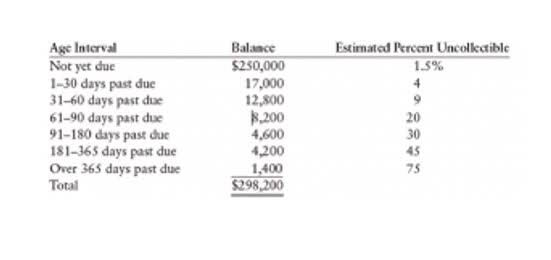
This way, budget adjustments can happen in real time while taking into account external factors like economic shifts and rising competition. Big Bad Bikes is planning to use a flexible budget when they begin making trainers. The company knows its variable costs per unit and knows it is introducing its new product to the marketplace. flexible budget meaning Its estimations of sales and sales price will likely change as the product takes hold and customers purchase it. Big Bad Bikes developed a flexible budget that shows the change in income and expenses as the number of units changes. It also looked at the effect a change in price would have if the number of units remained the same.
Ultimate Guide to Budgeting & Forecasting

Actual results are compared to the static budget numbers as one means to evaluate company performance. However, this comparison may be like comparing apples to oranges because variable costs should follow production, which should follow sales. Thus, if sales differ from what is budgeted, then comparing actual costs to budgeted costs may not provide a clear indicator of how well the company is meeting its targets. A flexible budget created each period allows for a comparison of apples to apples because it will calculate budgeted costs based on the actual sales activity. A flexible budget starts with fixed expenses, then layers a flexible budgeting system on top that allows for any fluctuation in costs. Most flexible budgets use a percentage of projected revenue to account for variable costs.
Critical differences between flexible and fixed budget

The process of ascertaining each cost’s categories and the sort of cost it falls under can be challenging and take time. Your flexible budget would then look at revenue, based on both units sold and sales price. For example, your flexible budget may have three columns that show the number of units sold, the sales price, and total revenue. Fixed expenses such as rent, utilities, equipment costs, and salaries usually make up a significant portion of any business budget. While it’s possible that these costs will change slightly, most businesses simply budget for them upfront. Flexible budgets usually try to maintain the same percentages allotted for each aspect of a business, no matter how much the budget changes.
Fixed Budget vs. Flexible Budget: What’s the Difference?

By aligning with strategic goals, financial forecasting software like Brixx enhances the flexibility and precision of budgeting, contributing to better decision-making. Take a free trial today to learn more about how Brixx can help your business. Many costs are not fully variable, instead having a fixed cost component that must be derived and then included in the flex budget formula. Flexible budgets offer close monitoring of expenses https://www.bookstime.com/ versus revenue, and they allow for the opportunity to test things out and see what might work and what won’t without rigid financial constraints. Imagine your product goes viral on social media and gains unexpected popularity overnight, now there is a demand for 20 units next month, which would cost $20 to make. Now, let’s assume that it costs one dollar to make each unit of product, so you budget $5 a month for this.

But with Mosaic’s business budgeting software, you can streamline processes and break down silos to act as a more collaborative partner to everyone in the business. With Mosaic, you can also import your financial statements from Excel, ensuring seamless integration and facilitating a more holistic view of your financial position. The difference between a flexible budget and a static budget is that static budgets deal with fixed budget amounts that don’t vary as other line items increase and decrease. Companies with variable costs require flexible budgets because this kind of budget allows them to course correct or account for that variation with minimal disruption to their operations. Among all, the one closer to the actual activity is to be considered. After that, one needs to analyze the performance and cost analysis by comparing both.
- If you want to get a better handle on managing your money, creating a budget should be the first step.
- After almost a decade of experience in public accounting, he created MyAccountingCourse.com to help people learn accounting & finance, pass the CPA exam, and start their career.
- They made it flexible because the specific company’s or department’s needs do not remain static.
- After that, one needs to analyze the performance and cost analysis by comparing both.
- If the factory has to use more machine hours one month, its budget should logically increase.
- With an advanced flexible budget, the expenses remain stable at a particular activity level but eventually fluctuate beyond such a level.
What is the difference between a Flexible Budget and a Static Budget?
And because flexible budgets expand and contract in real time, they allow businesses to exist as the organic, growing entities that they are. Which is why companies have moved away from traditional static budgeting to more flexible budgeting strategies. A flexible budget lets you adjust to global trends and economic changes rather than trying to anticipate when those will happen (and likewise brace for their impact). The variable cost ratio compares the costs of increasing production to the resulting revenue. In this step, you want to identify your variable cost ratio for each product, good, or service you sell, and create a model that you can use for your scenario analysis in the next step.
What is a Flexible Budget and How to Create it?
Firm A is looking to determine the supplies and electricity costs, with a $20 cost per machine hour plus a fixed cost of $45000. Spending variance is the difference between what you should have spent at your actual production level and what you did spend. If it is favorable, you spent less than your actual production level should have required. Datarails’ budgeting and forecasting software can help your team create and monitor different types ofbudgets faster and more accurately than ever before.

At its core, a flexible budget is a powerful financial planning tool that accommodates variations in activity levels or sales volumes. Unlike a static budget, which remains unchanged regardless of real-world changes, a flexible budget adjusts and aligns with the actual levels of activity. This adaptability allows businesses to make more accurate performance evaluations and forecasts, fostering better decision-making processes. A static budget is one that is prepared based on a single level of output for a given period. The master budget, and all the budgets included in the master budget, are examples of static budgets.
Disadvantages of Flexible Budgeting
An organization requires the services of experts to prepare a flexible budget. Thus, the availability of these experts is a vital factor in designing a flexible budget. A flexible budget helps to recognize operational errors and inefficiencies. Therefore, a flexible budget is a great tool for correction and control. Learn how it can help your business respond to the ups and downs of the marketplace.